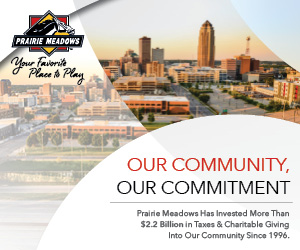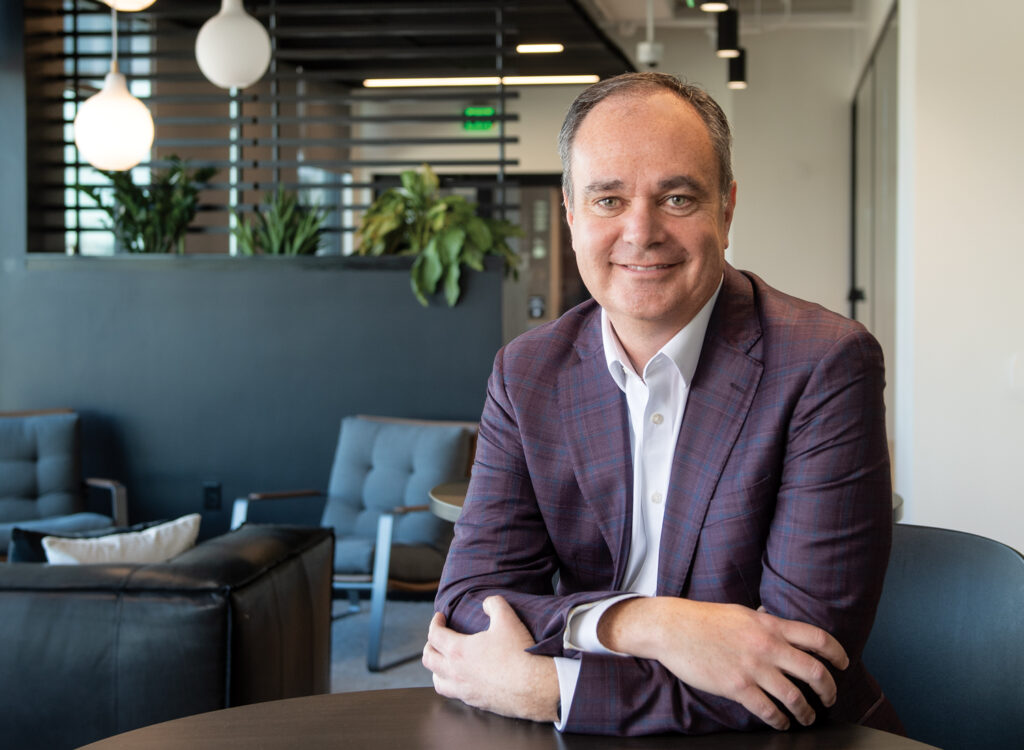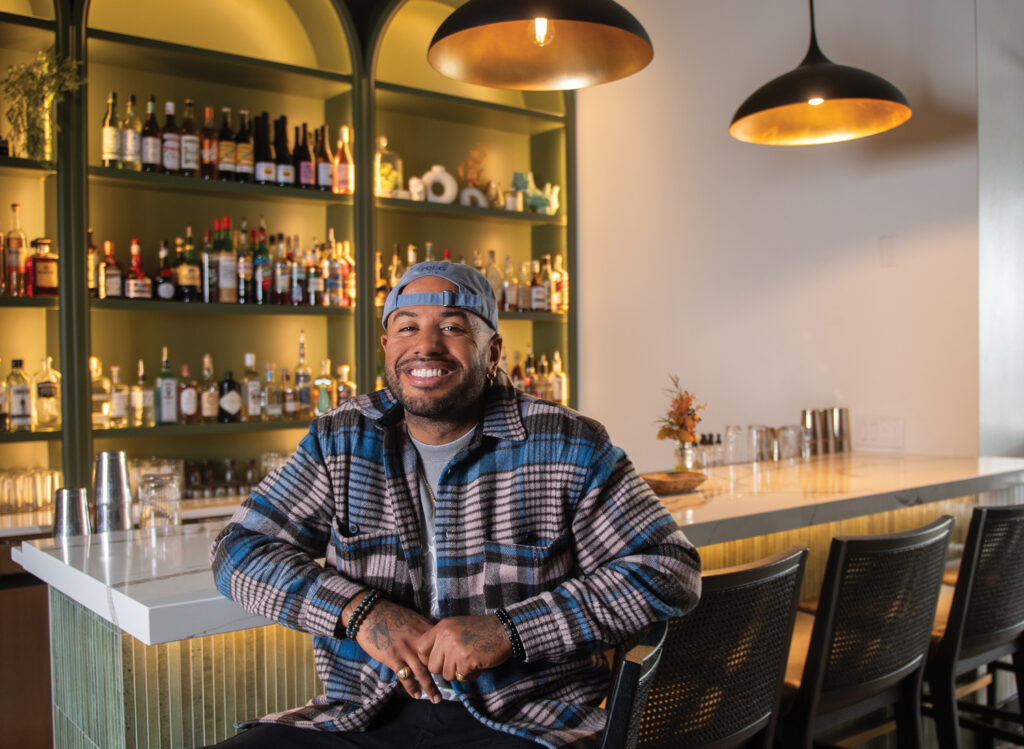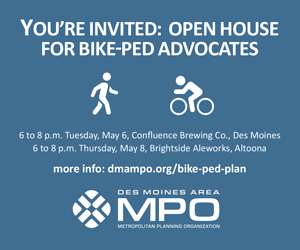A Closer Look: Jim Hayes
Executive director, Des Moines Pastoral Counseling Center

Jim Hayes recently completed his first year as executive director of the Des Moines Pastoral Counseling Center, where he is also the spiritual director. He succeeded Ellery Duke, who retired in late 2016 after more than 40 years as executive director and a counselor with the center. Before joining the Pastoral Counseling Center, Hayes worked for 15 years at Simpson College in Indianola in a variety of roles, including religion professor, vice president of student affairs and director of the Center for Vocation and Integrative Learning. He has also worked as campus minister at Iowa State University. Before his work in the higher education sector, he provided spiritual counseling and pastoral ministry in a wide variety of settings in the Northeast Iowa Archdiocese of Dubuque. In the community, Hayes has volunteered for the past 15 years at Hope Ministries as a spiritual counselor, and he has served on the board of Big Brothers Big Sisters of Central Iowa.
How did you connect with the Pastoral Counseling Center?
They reached out to me when they had this succession plan going on. They cast a pretty wide national net; you can imagine the wake that someone like Ellery left after 40 years. … How do you replace the wisdom and the talent that he had? I knew of the organization through my role in student affairs at Simpson. … But when they reached out to me and I got to know the organization and the people, I (realized) what a cool place this is. I was really impressed by the organization.
What are some highlights of your first year?
First of all, the colleagues that I have here — there’s just a rich diversity of professionals here, and from a variety of life experiences as well. About six months in, the board wanted me to get some strategic planning going. … They didn’t feel like they needed a change agent, they just wanted someone who could up our game in terms of strategy and fundraising. Ellery was a half-time administrator in addition to being a clinician, and the place had grown so much they felt it was time to transition to a full-time executive director. In that strategic work, one of the things that popped for us was partnerships. As an example, we formed an accountable care organization (ACO) with UnityPoint Health (with eight other primarily mental health organizations), and we’re looking to form an ACO with Mercy as well.
Do you anticipate more partnerships?
I think there has to be, due to the limited capacity that we have. If we have limited resources, we have to make sure we don’t have redundancies. So how can we work better with Orchard Place because they work with kids? They’re a much bigger organization with a much bigger bandwidth than we have. We’re not a community health center like Eyerly Ball; how can we learn from them? … The other piece for me is (partnering with) the business community, and exploring how we can be a better resource for employers, knowing that employee engagement and productivity when it comes to mental health is a lot of lost income for employers. We have a lot of executives from large companies on our board that will lead to referrals to our employee assistance program. They know who we are and the quality of our therapists and send their employees our way.
What’s your philosophy in leading this organization?
One of (Simpson alum George Washington Carver’s) favorite quotes for me is: “Start where you are; use what you have; do what you can.” I’m not a huge ambitious guy, but next year ought to be better than this year — a trajectory of improvement is always important to me. It keeps things manageable for me in the day-to-day, just knowing the immensity of what people are wrestling with in regard to their own wellness and health and how they’re doing in the world. As you can imagine, in ministry and education you’re encountering a crisis almost every day, so how do we make it better for folks today than maybe it was yesterday?
Other thoughts on leadership?
I’m very much a servant-leader. We don’t have money for some particular services, so we have to find ways to inspire volunteers and our own employees to get involved in things. So it’s important for me to model that. An example for me is that I wanted to maximize our square footage so that we could help as many people as possible without doing a construction project. So we did an analysis and found there were a lot of empty offices because clinicians have different hours. I was the first one; I told one of our clinicians he could use my office while I did fundraising calls on Thursdays.
What changes are ahead for the center in the next few years?
One of my key goals for this year is assessment. We’re looking at fundraising, mostly through grants, with some partners that have some capacity to help us mainly through technology. One thing we want to start to pay attention to is data related to intake — how long does it take for someone to get in here for an appointment? And also doing measures related to how they’re doing week-to-week. … We really want to do a better job of telling our story about what happens to people when they come here and how do they get better. That will help us lay the bricks for branding down the road to help us build partnerships.
How big is the waiting list for new clients currently?
It varies — it’s cyclical and seasonal. We do reports regularly to the ACO. Mostly we get people in here within four to six weeks; that’s one of the metrics we’re going to work on for 2018. Some of our specialists have longer waiting lists, but in some cases you might be able to get in next week. Right now it’s 39 adults and 20 children.
What’s an example of a strategy to address this?
If somebody calls in to a mental health facility, they’re typically in need and they’re motivated to get help. … If you can get a person in for any kind of service within 48 hours, there’s a 90 percent show rate, and it can go to 95 percent. It might be just a quick intake and give them a mindfulness exercise, say if they have anxiety. Then you get them assigned to a therapist, which might be a week or two out, but then they’re already in the system and they feel like they’ve started that process of healing. I definitely want to improve our show rate.
What are your hobbies?
My wife and I both like to be physically active. I’m a runner, and I like to do a few road races every year. I don’t play nearly as much golf as I would like to, but I self-identify as one of those sick people who plays golf, thinking someday I might get good at it. I also do a lot of reading, some of it business management; I’m a theologian so I enjoy reading books on spirituality.
In addition to the Bible, what’s a favorite book?
The one that’s probably had the most impact for me is “Traction.” I went to (author Gino Wickman’s) workshop last year and the information on forming the right team and some of this measurement/assessment stuff was helpful. And for a statewide faith-based workshop I’m doing on forgiveness, I’m reading “The Sunflower” by Simon Wiesenthal. I also like cheesy adventure novels that I read just to go to sleep at night.










